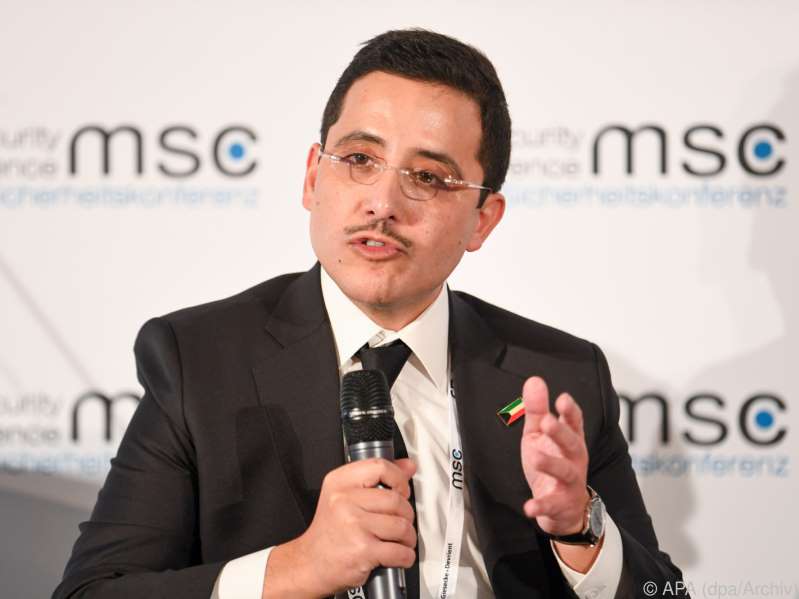
Kuwait's foreign minister mediated
More than three years after a blockade against Qatar began, the end of the conflict with Saudi Arabia and its allies is on the horizon. Kuwait's Foreign Minister Ahmed al-Sabah said on Monday, according to the Kuna state agency, that the governments in Doha and Riyadh had agreed to open their border traffic. Air, land and water traffic should be released again from Monday evening.
The announcement came on the evening before the annual Gulf Cooperation Council (GCC) summit on Tuesday. The conflict and its near end should be the dominant topic at the meeting, where a corresponding agreement is also to be signed. The Emir of Kuwait, Sheikh Nawaf al-Ahmed al-Sabah, had discussed the agreement with Saudi Arabia's Crown Prince Mohammed bin Salman and the Qatari Emir Tamim bin Hamad al-Thani on the phone. He also wanted to travel to the summit in Saudi Arabia on Tuesday.
On June 5, 2017, Saudi Arabia, Bahrain and the Emirates closed the borders with the country on a peninsula and imposed a complete blockade. All diplomatic and trade relations and transport routes were cut, compatriots and investments withdrawn. Egypt joined the blockade. Observers also saw an attempt by Saudi Arabia to expand its dominance in the region.
The USA, which mediated with Israel when several Arab states were rapprochement, had also campaigned for an end to the conflict in the Gulf. Jared Kushner, advisor and son-in-law of incumbent US President Donald Trump, flew to Saudi Arabia on Monday. Kushner should attend the GCC meeting there, as a US government official confirmed. Kushner had “promoted and made possible” the agreement. A “new era of cooperation” is dawning, said the government representative.
Turkey, Qatar's most important ally, welcomed the agreement and spoke of an important step towards resolving the conflict in the Gulf. It is hoped that this will be resolved permanently, announced the Foreign Ministry in Ankara. The Emirate Minister of State for Foreign Affairs, Anwar Gargash, predicted a historic meeting on Tuesday on Twitter. It will restore unity in the Gulf and ensure security and stability.
Saudi Foreign Minister Faisal bin Farhan had already spoken of “significant progress” in solving the crisis at the beginning of December: “We hope that this progress can lead to a final agreement that seems within reach.” Qatari sources said that Sheikh Mohammed bin Said al-Nahjan, Crown Prince Abu Dhabi and de facto ruler of the United Arab Emirates (UAE), was against reconciliation.
Above all, Riyadh and Abu Dhabi was and is a thorn in the side that Qatar supports Islamist organizations such as the Muslim Brotherhood. The states had accused the emirate of supporting terrorism and having too close ties with Shiite Iran. They had called for Doha to end its relations with Tehran and also to close the popular news channel Al-Jazeera, which critics believe gives the Muslim Brotherhood and other Islamists too much space. Qatar had denied the allegations.
The blockade had initially led to a bottleneck in imported goods in Qatar. However, the emirate was able to compensate for financial losses from its billion-dollar state fund. Other than that, Doha withstood the pressure thanks to its large economic resources and political alliances beyond the Gulf region. Diplomatic efforts to resolve the crisis were unsuccessful.
Qatar is hosting the 2022 World Cup and is one of the richest countries in the world based on per capita income. The country is the world's largest exporter of liquefied gas and wants to increase production significantly. At the same time, Qatar is criticized for the human rights situation, especially when it comes to dealing with migrant workers. According to Amnesty International, 2 of the approximately 2.4 million inhabitants are migrant workers, who come mainly from poor countries such as Bangladesh, Nepal and India.

